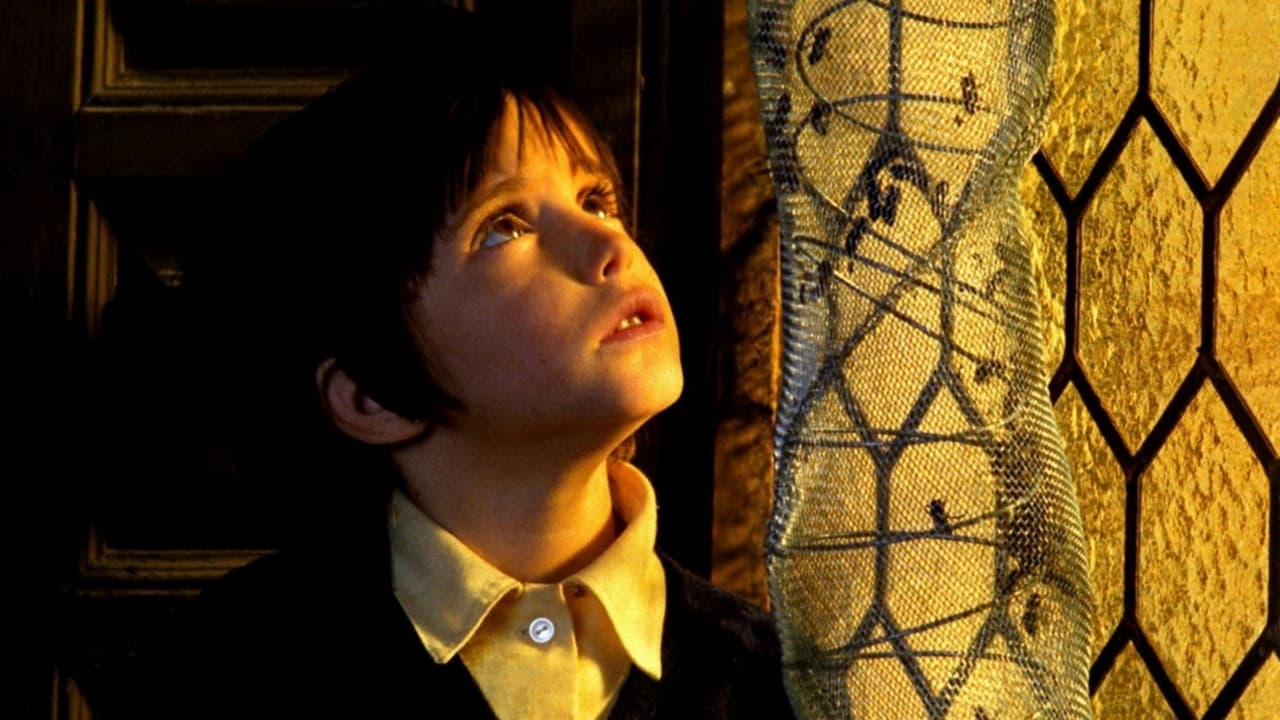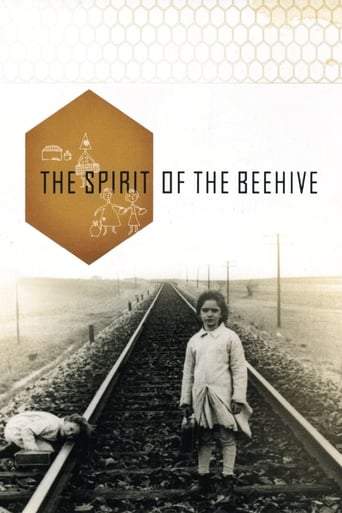

This movie was incredibly slow and drawn out. The director would shoot one scene for 20 straight seconds and nothing would happen. The people in this movie don't like to say much either. Calling it as it is here. Immensely over rated. Why does IMDb want me to stretch this out to make my review longer? I have said all that needs to be said.
... View MoreA sensitive seven-year-old girl living a small village in 1940 rural Spain is traumatized after viewing James Whale's "Frankenstein" and drifts into her own fantasy world.This film has the distinguish of being one of the few films that was symbolic of life in Spain under General Franco... at least while Franco was still alive. There is so much with the beehive metaphor and the isolation...I wondered if this film in any way inspired Guillermo del Toro's "Pan's Labyrinth". Both have Spanish children with monstrous friends escaping the horrors of the dictatorship... And a quick search proves my hunch correct. Del Toro has said, "Spirit of the Beehive is one of those seminal movies that seeped into my very soul." Such praise!
... View MoreSensational film that dispenses a thought-provoking plot and considered to be one of the best Spanish films , in fact was voted third best Spaniard film by professionals and critics in 1996 Spanish cinema centenary . It deals with a rural Spain soon after Franco's victory , wasteland of inactivity and poorness . It's 1940 in a small, stark Castillian village , there a sensitive seven-year-old girl named Ana (Ana Torrent) , her sister Isabel (Isabel Telleria) along with their parents (Fernando Fernan Gomez , Teresa Gimpera) are living a small village in 1940 rural Spain . The father gets relief by the industriousness of bees in their hives . Ana then is traumatized after viewing James Wale's 1931 "Frankenstein" and drifts into her own fantasy world . The movie leaves a lasting impression on seven year old Ana and she is heavily traumatized . The fragile , single little Anna dreams of meeting the monster and befriends a fugitive man just before he is chased . Sensitive film full of feeling , haunting mood-pieces , wonderful images and sense of wonder . This extraordinary flick spells through intricate patterns of frames , sets , sound and color . Interesting screenplay by the same director Erice based on a story by Angel Fernandez Santos . Luxurious photography by magnificent cameraman Luis Cuadrado helped by another excellent cinematographer , Teo Escamilla , Cuadrado was going blind at the time this film was made , he eventually went completely blind and committed suicide in 1980 . Moving and emotive musical score by Luis De Pablo . Good and evocative art direction by subsequently filmmaker Jaime Chavarri , showing faithfully rural scenarios , as the deserted building next to the well was actually an abandoned sheep-shed , being filmed on location in Hoyuelos, Segovia, Castilla y León and Parla, Madrid . The motion picture well produced by notorious producer Elias Querejeta was stunningly directed by Victor Erice , nicknamed the Spanish Terence Malick . He filmed a total of exactly 1000 shots in the film , exactly 500 are inside, and 500 are outside ; there is no shot of all the family in a single frame in the entire film : even in the dinner-table scene, the actors are shown separately . Erice has made only two films more , the generally well regarded ¨El Sur¨ , ¨El sol del Membrillo¨ and some Shorts too . This touching picture will appeal to Spanish films buffs . Rating : Top-notch and outstanding movie , worthwhile seeing .
... View MoreThe Spirit of the Beehive (1973)Seen just for what it is, a story of a little girl and her precious innocence in a world seeming to teem with quiet adult mysteries, this is a beautiful and somewhat slow movie. Sometimes a movie can be so evocative and transporting, the slowness is a gift, a necessary quality for being absorbed and lost in another world. And an elegiac world, sad and embracing and heavenly all at once.For me, thought, the slow pace began to weigh down the better parts of the movie, and in the simpler parts it become a distraction. In a few sections with somewhat awkward acting (a scene between the main woman, a kind of Nordic looking troubled soul, and a doctor, is glaringly bad), the movie showed its underbelly, which is really a bit full of itself. The metaphors are pushy and overused, the utterly sweet little girl the one unifying and transcendent element.Again, just seen for what it is, set in 1940 Spain (just after its civil war, and during WWII, though Spain largely avoided the war because it was thoroughly fascist by then) it is filled with isolation and desolate landscapes and a kind of loneliness that goes beyond isolation. The key, and important, twist at the beginning, the arrival of a copy of the 1931 American movie "Frankenstein" (dubbed into Spanish), is a penetration of this sadness from outside of Spain, and outside of the rural world of these simple villagers. The little girl is rapt, and her acceptance of the monster in her heart, almost literally believing in him, is a metaphor for wanting more than what life is going to offer, but getting more than other might expect simply by looking for it, reaching out for the gentle monster of your dreams.There are other metaphors, little ones like the out of tune piano, and large ones like the beehives, which inspire some inner monologues that push meaning far too hard. There is a second dim theme to the plot, about this woman having an affair that tears deep into her heart. There is a sense of flow to the movie, of broad horizons (the land is flat and barren), or repetition that builds on itself. It's a thoughtful movie, certainly, and a deliberate one, and a very slow one. It won't transport many viewers (though it has a growing and worshipful following among critics and movie buffs). I don't think the translation and subtitles were a problem. I saw it with a native Spanish speaker who was equally open to the movie's magic and equally dulled by its slow pace and its dwelling on small things far too long, as if taking for granted a patient and spellbound audience.So you might have to see the movie for what most viewers, especially younger ones, no longer understand: it is a metaphor and almost a protest against the continuing if weakening fascist government of Spain in 1973. It had been 35 years since the civil war tipped in favor of the fascists, and the oppressive government had squashed Spain's development as an economy and as an artistic culture all that time. This was a typical faint but legible response, filled with subtle hints of defiance, wrapped in mystery and analogy as a way of getting by the censors.But most of all, this is about human nature, beyond politics. It's about wanting more, about being alone in a family that should be very together. Enter with patience, and willingness to get lost in the mood of it all, because this is the soul of the movie, and it might just win you over.
... View More